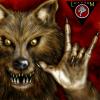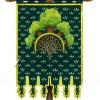Hmm. Depends upon your ancient culture. Good old Heraclitus would probably have agreed, but most Greek philosophers would have stared at you in horror for thinking that chaos was the natural state. Platonic philosophy is pretty much the opposite of that, though yeah, if you go to the subcontinent and look at the concept of
maya, you start to see it.
Though I'd probably prefer to look at the internal philosophy rather than real world philosophy to figure out stuff like this. For one, murder being lawless or otherwise, Bhaal
was a Lawful Evil deity, so all the references to the Abyss made very little sense to me.
Of course, you do have to take into account your Lawful Evil societies to figure out if murder is inherently unlawful. Cause it happens all of the time even there. In Thay, if I recall, whether you get in trouble depends upon the status of the victim relative to your own. In Zhentil Keep, murder is explicitly a capital offense, though it probably works out the same way it does in Thay. Justice is a bit...lacking if you have money or power. One interesting note I came across in the Unapproachable East book said that some Red Wizards carry around extra red robes to justify random murders they commit by flinging the robe over the victim (since wearing red robes in Thay is punishable by death), which does complicate the notion that they're above that particular law, even if they probably wouldn't get into legal trouble because of it.
So yeah, murder and law go together, which does put Bhaal in an interesting place ideologically. The other major Lawful Evil deities I know about (Bane, Xvim, and Loviatar) embody a lawful doctrine; Bhaal subverts it. Granted, I do like the thought that he's
Lawful Evil precisely because without that lawful edge, he'd be a god of slaughter and killing rather than a god of
murder per se.
Edited by Rhaella, 31 January 2012 - 01:58 PM.










